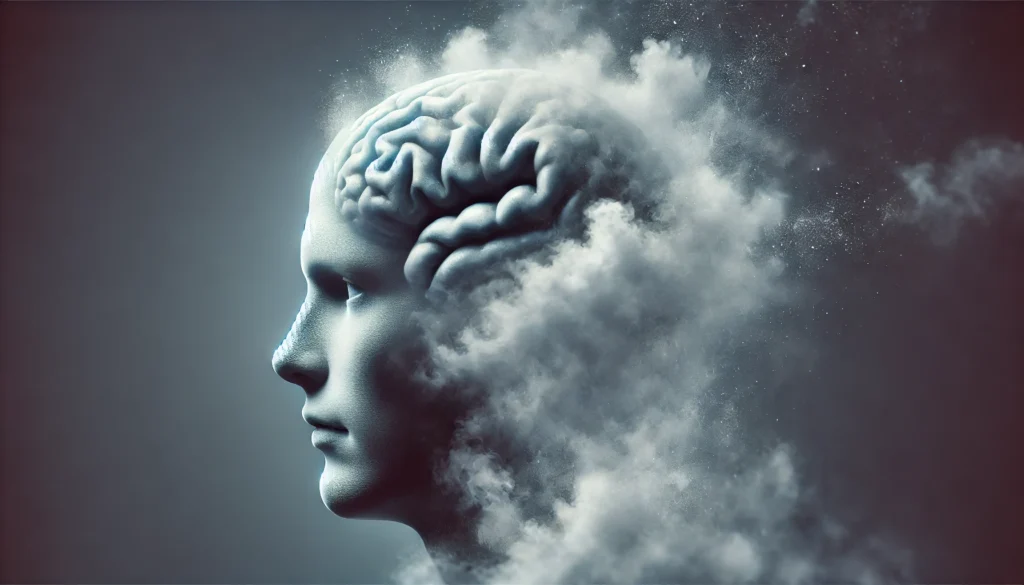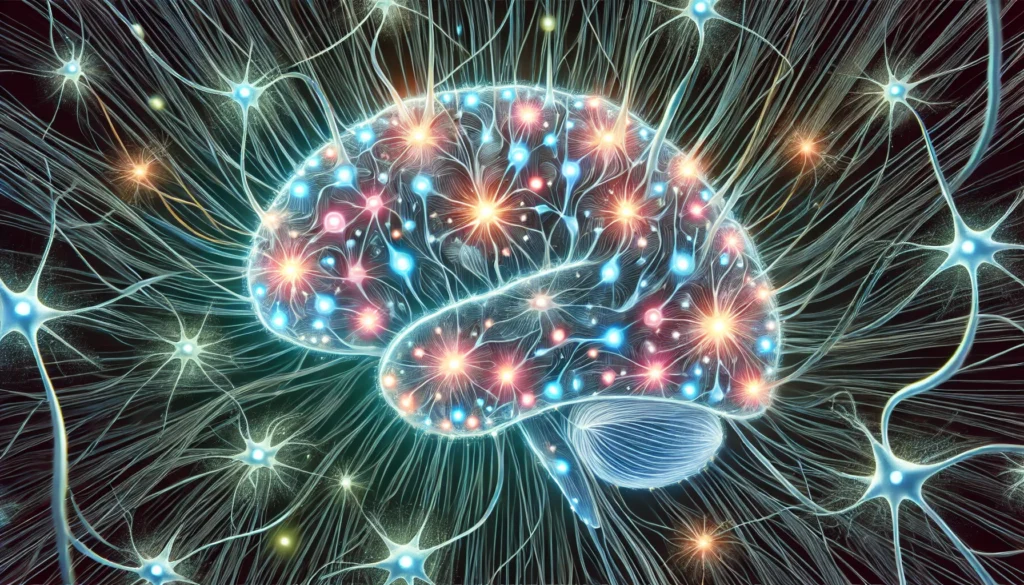Depression is a multifaceted mental illness that can lead to memory issues. The cognitive symptoms of depression often manifest as difficulties in concentrating, making decisions, and remembering information. But why does this happen?
You may also like: Understanding the Science Behind Lost Memory
The Science Behind Depression-Induced Memory Loss
Several factors contribute to memory issues in depression. One of the primary culprits is the imbalance of neurotransmitters in the brain. Neurotransmitters like serotonin, dopamine, and norepinephrine play crucial roles in mood regulation and cognitive function. When their levels are disrupted, it can lead to both mood disorders and cognitive impairments, including memory loss.
Chronic stress, often associated with depression, can also lead to elevated levels of cortisol, a stress hormone. High cortisol levels are linked to shrinkage in the hippocampus, the brain region responsible for forming new memories. This biological response can lead to forgetfulness and confusion, further complicating the lives of those suffering from depression.
Neuroplasticity and Its Role in Memory
Neuroplasticity refers to the brain’s ability to reorganize itself by forming new neural connections. In depression, the brain’s neuroplasticity can be impaired, making it more challenging to retain and recall information. However, enhancing neuroplasticity through specific interventions can help mitigate memory issues.
Mindfulness and meditation, along with cognitive training exercises, are known to promote neuroplasticity. These practices encourage the brain to adapt and improve its functions, offering a pathway to combat memory loss.
The Impact of Sleep on Depression and Memory
Sleep is another critical factor linking depression and memory loss. Poor sleep quality or insomnia, common in depression, can severely affect cognitive functions, including memory. Deep sleep stages are essential for memory consolidation, where the brain processes and stores new information.
Addressing sleep issues through cognitive behavioral therapy for insomnia (CBT-I), medication, or lifestyle changes can significantly impact memory retention. Establishing a regular sleep schedule and creating a conducive sleep environment are practical steps to enhance memory function.
Recognizing Depression-Related Memory Issues
Depression can affect memory in various ways, from short-term memory loss to difficulties with recalling past events. Here are some common manifestations:
Short-Term Memory Loss and Forgetfulness
Individuals with depression often experience short-term memory loss, where recent information is quickly forgotten. This can lead to challenges in daily life, such as forgetting appointments or misplacing items.
These memory lapses can contribute to a sense of inadequacy or frustration, exacerbating depressive symptoms. Recognizing these patterns is crucial in addressing the cognitive impacts of depression effectively.
Confusion and Difficulty Concentrating
The cognitive fog accompanying depression can make it hard to focus on tasks or follow conversations, leading to a sense of confusion. This lack of focus can exacerbate memory problems, creating a vicious cycle.
Interruptions in concentration can stem from persistent negative thoughts, which monopolize cognitive resources. Developing strategies to manage these intrusive thoughts can improve concentration and memory retention.

Emotional Memory and Its Alteration in Depression
Depression can also skew emotional memory, where individuals may recall negative experiences more vividly than positive ones. This bias can reinforce depressive thinking patterns, making it harder to shift focus away from negative memories.
Therapeutic interventions aimed at rebalancing emotional memory can help individuals form a more accurate recollection of events, aiding in the recovery process.
Reversibility of Memory Loss from Depression
A pressing question is whether memory loss from depression can be reversed. The encouraging news is that with effective treatment of depression, cognitive functions, including memory, can often be restored. Let’s explore some strategies to combat these memory issues.
Practical Strategies to Combat Memory Loss in Depression
Engaging in Cognitive Behavioral Therapy (CBT)
CBT is a therapeutic approach that helps individuals identify and change negative thought patterns. By focusing on altering these thought patterns, CBT can alleviate depressive symptoms and improve cognitive functions, including memory.
CBT techniques such as cognitive restructuring and behavioral activation can also enhance problem-solving skills and decision-making, indirectly supporting memory improvement. Regular sessions with a trained therapist can provide personalized strategies to address both depression and memory issues effectively.
Medication and Its Role
Antidepressants can help correct neurotransmitter imbalances, potentially improving both mood and memory. However, it’s essential to consult with a healthcare provider to determine the appropriate medication and dosage.
It’s important to monitor the effects of medication on cognitive functions, as some antidepressants might cause side effects that temporarily affect memory or concentration. Regular follow-ups with a healthcare provider can ensure that treatment plans are adjusted as needed for optimal cognitive health.
Lifestyle Changes to Support Cognitive Health
- Regular Exercise: Physical activity boosts brain health by increasing blood flow and reducing inflammation, which can improve memory function. Incorporating both aerobic and strength-training exercises can provide comprehensive benefits for mental and physical health.
- Balanced Diet: Consuming a diet rich in omega-3 fatty acids, antioxidants, and B vitamins supports brain health and cognitive function. Including a variety of fruits, vegetables, and whole grains in your diet can help sustain energy levels and improve mental clarity.
- Quality Sleep: Adequate sleep is crucial for memory consolidation. Establishing a regular sleep routine can significantly enhance cognitive performance. Using relaxation techniques such as deep breathing or guided imagery before bedtime can promote better sleep quality.
Mindfulness and Meditation
Mindfulness practices, including meditation, can reduce stress and improve focus, enhancing overall cognitive health. These practices encourage present-moment awareness, which can help break the cycle of stress and cognitive fog that contributes to memory loss.
Regular mindfulness practice can also foster emotional regulation, aiding in the management of depressive symptoms. Integrating short meditation sessions into daily routines can gradually build resilience against cognitive decline.

Social Connections and Cognitive Engagement
Maintaining strong social connections and engaging in mentally stimulating activities can preserve cognitive functions. Participating in group activities or learning new skills can enrich brain health and offset memory deterioration.
Social interaction provides emotional support and intellectual stimulation, both of which are vital for combating depression-related cognitive challenges. Pursuing hobbies or volunteer work can create a sense of purpose and fulfillment, further supporting mental wellness.
Current Trends and Future Implications in Addressing Memory Loss
The understanding of depression and its impact on memory is continually evolving, with promising new treatments and technologies on the horizon.
Nootropics and Brain Supplements
Nootropics, also known as “smart drugs,” are gaining attention for their potential to enhance cognitive function. While research is ongoing, certain nootropics may offer benefits for memory and focus, particularly in individuals with depression-related cognitive impairments.
Supplements such as omega-3 fatty acids, ginkgo biloba, and acetyl-L-carnitine are being studied for their potential cognitive benefits. However, it’s essential to consult with a healthcare provider before starting any supplement regimen to ensure safety and efficacy.
Technological Advances in Brain Health
Emerging technologies, such as neurofeedback and brain stimulation techniques, hold promise for improving cognitive function in individuals with depression. These interventions target specific brain areas to enhance neural connectivity and cognitive performance.
Virtual reality (VR) and computer-based cognitive training programs are also being explored as tools to improve memory and attention. These technologies provide interactive and engaging platforms for cognitive rehabilitation.
The Role of Personalized Medicine
Personalized medicine approaches, which tailor treatment plans based on an individual’s genetic makeup and specific symptoms, are becoming more prevalent in managing depression and its cognitive effects. This approach may lead to more effective and targeted interventions for memory loss in depression.
Genetic testing and biomarker analysis can provide insights into an individual’s unique biological profile, guiding treatment decisions. Personalized interventions can optimize therapeutic outcomes by addressing specific cognitive challenges associated with depression.

Final Thoughts
Memory loss associated with depression is a challenging but manageable condition. By understanding the link between depression and memory issues, and by implementing the strategies outlined above, individuals can improve their cognitive health and overall quality of life.
Whether through therapeutic interventions, lifestyle changes, or emerging technologies, there are numerous pathways to alleviating memory loss in depression. As research continues to advance, new insights and treatments will further enhance our ability to combat these cognitive challenges.
In the journey toward mental wellness, knowledge, and proactive management are powerful allies in restoring memory function and achieving a more balanced, fulfilling life. Embracing a holistic approach that addresses both mental and cognitive health can empower individuals to regain control over their lives and enhance their sense of well-being.
Further Reading:
Is Memory Loss a Sign of Depression?
Memory loss: When to seek help
Important Note: The information contained in this article is for general informational purposes only, and should not be construed as health or medical advice, nor is it intended to diagnose, prevent, treat, or cure any disease or health condition. Before embarking on any diet, fitness regimen, or program of nutritional supplementation, it is advisable to consult your healthcare professional in order to determine its safety and probable efficacy in terms of your individual state of health.
Regarding Nutritional Supplements Or Other Non-Prescription Health Products: If any nutritional supplements or other non-prescription health products are mentioned in the foregoing article, any claims or statements made about them have not been evaluated by the U.S. Food and Drug Administration, and such nutritional supplements or other health products are not intended to diagnose, treat, cure, or prevent any disease.


